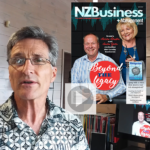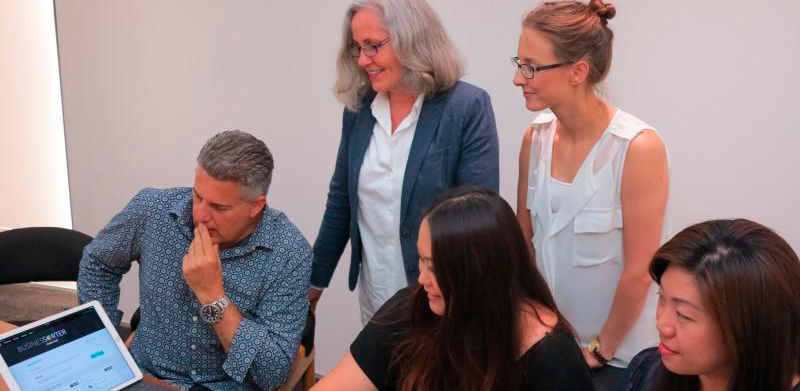The changing face of SME business ownership
With more women taking up the challenge of business ownership the face of small…
With more women taking up the challenge of business ownership the face of small business is steadily changing. But both genders still benefit hugely from the advice of business mentors.
Think of your typical small business owner and whether in a suit or shorts, the person you’re thinking of is almost certainly male.
But as Bob Dylan once said, ‘the times, they are a-changing’. An increasing number of small business owners are now women.
They’re not just a small minority either; according to figures from accounting firm MYOB, 44% of New Zealand small business owners are now women.
Five years ago the number was closer to 30%.
In terms of the number of start-ups, the figures are even more startling. Sixty percent of start-up businesses are launched by women.
According to Lisa Ford, general manager of Business Mentors New Zealand, with more women than ever starting and running their own businesses, it’s time we recognised the changing face of the small business owner and the support offered to enable them to thrive.
Just how women differ to men when it comes to business has been the topic of numerous research papers and is still being heavily debated.
When not working as a volunteer business mentor, Kate Wright is a business entrepreneur who works on product development in the personal care industry. Kate has carried out extensive research and written several papers on the future workplace.
Although keen to point out she doesn’t want to see women relegated to any special group, she believes women have a more holistic approach to business.
“Women may think about the long term more and how it will impact society on a larger scale, rather than being short-term focused and short-sighted like I believe many businesses are today.
“There are also some real advantages to being a woman in business. Because of the challenges that women face, and have faced historically in the workplace and in their careers, there is a shared understanding between us, and that creates a real community among women.
“It’s very special and undefinable, and it’s amazing to feel the force of.”
Melanie Beattie, ASB head of strategic partnerships agrees. Recognising the changing face of the small business owner, the bank has made moves to ensure its products and services better serve the needs of female business owners.
The bank was the first in the country to launch a ‘Women in Business’ banking package. This service-side package acknowledges that women in business have different needs to men, for example, around the way they interact with the bank and the types of questions they want answered.
“Both men and women have gaps in their financial literacy, but our research has uncovered that men tend to be more confident when asking for advice. Some women, but certainly not all, tend to need to a bit more encouragement to ask the financial questions that are burdening them.
“But regardless of gender, financial understanding is incredibly important for small business owners. Many have their heart and soul on the line, and often have their houses mortgaged. The pressures on owners to achieve can be significant.”
The mentoring factor
This financial understanding and knowledge is one of the most requested areas of assistance for small business owners seeking advice and support from Business Mentors New Zealand.
For a $225+GST administration fee, the national not-for-profit matches business owners looking to grow and succeed with experienced business professionals happy to pass on the advice and skills they’ve learnt from many years in business.
Rewa Pene is a Dunedin based photographer who was put in touch with Business Mentors after receiving a government start-up grant.
Rewa used the grant to launch Pene Productions and was matched with Michael Ferrari, recently recognised in the Queen’s Birthday Honours for his extensive work in the community.
“In order to secure the grant I needed a solid business plan and that’s where Michael became involved.
“He helped me develop my plan and put in place the processes and procedures that has enabled my business to thrive, particularly around understanding finance and accounting,” says Rewa.
After six months of support, Rewa has now established herself as a successful commercial photographer, with a keen interest in architectural photography.
As well as money advice, businesses often need support with goal setting and making those changes that can take them from a small business to a growing, successful business.
Efficiency drive
Beattie says one of the key things businesses can do to grow is look at their efficiency.
“There is now a greater focus around efficiency in addition to growth. SMEs tend to be very time poor to manage their business.
“We have also found many SME owners are happy to have a successful ‘small’ business. The challenge is; how do they engage with the tools that can help them operate more efficiently, as opposed to agendas that are focused on growth,” she says.
One such business to benefit from greater efficiency was Mummy’s Yummys.
Ann-Marie Nichols started her business making cakes and biscuits using recipes passed down from her grandma as a way of generating extra income.
Now, thanks to her hard work, her sweet treats are being sold in Farro Fresh’s four Auckland supermarkets.
Helping Nichols on her journey was Business Mentors and volunteer mentor, Kelly Samson. Samson helped Nichols create a clear vision for her business, set stretch goals and hold her accountable for achieving them.
“Kelly acted as an objective pair of eyes and ears that made us consider everything we were doing and the value it was bringing to the business,” says Nichols. “If it wasn’t of value, we stopped doing it.”
Samson has been a volunteer for the past year and supports businesses in tandem with his own business, Pure Potential Results Coaching.
“I’ve helped all sorts of businesses and whether run by a man or woman, they all struggle with seeing their own blind spots. I help them to make sense of what they are doing, see what their strengths are and how to make the most of them,” says Kelly.
“Ann-Marie’s business is going through a transitionary period, these growing pains can often be difficult but we’re working together to ensure it goes as smoothly and successfully as possible.”
What’s clear is that whether you’re male or female, as a small business owner you can almost certainly benefit for an independent perspective on how your business is performing and ways it can grow.




